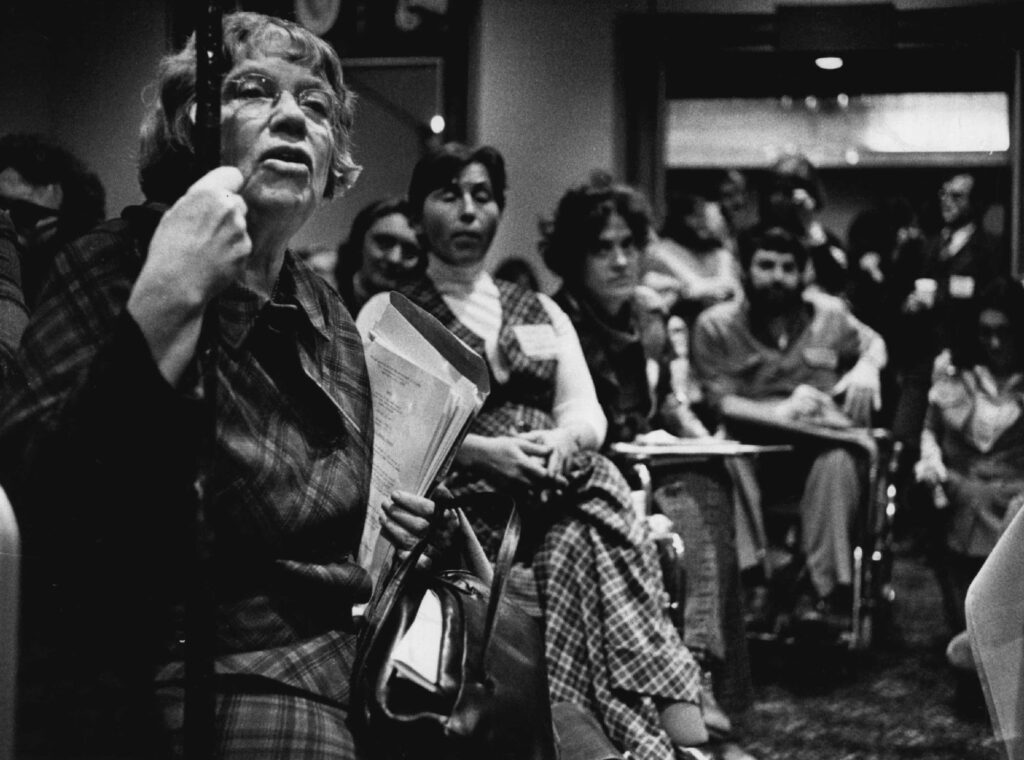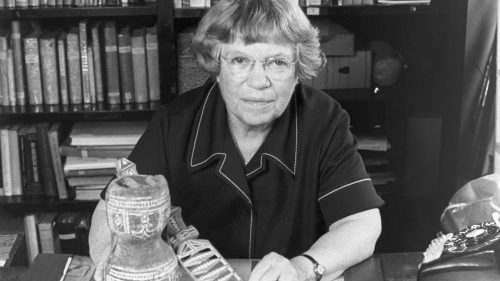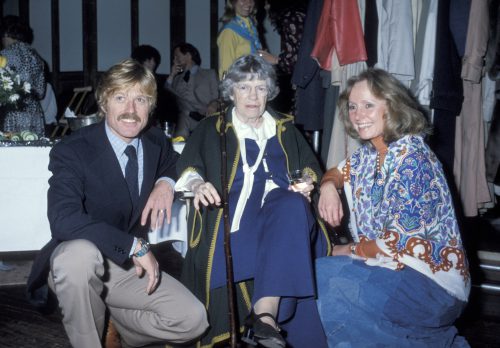Margaret Mead’s Remarkable Career

In this unit (to accompany SAPIENS podcast S6E2), students will learn about Margaret Mead’s career, including how her accomplishments and feminist perspective impacted future anthropologists and how her findings influenced 20th-century America. Students will read about significant milestones in her career and learn how her academic journey led toward her research outcomes with the Samoans and other anthropological achievements.
- Recall the significant milestones in Margaret Mead’s career as an anthropologist.
- Summarize how Mead’s findings have affected anthropology, Samoans, and the American public.

The Anthropologists Who Undid Sex, Race, and Gender

Margaret Mead Imagined Different Futures

Best of SAPIENS 2024

How Water Insecurity Impacts Women’s Health

Speaking Truth to Israel Requires More Than Academic Freedom

Inside Amazon’s Union-Busting Tactics

Fighting for Reproductive Rights in Retirement

Can Art Save the “Post-Apocalyptic” Salton Sea?

An Imagined Monograph for Nongqawuse

Her Dirge

How Water Insecurity Impacts Women’s Health

Fighting for Reproductive Rights in Retirement

How Allocating Work Aided Our Evolutionary Success

The Rise of Aunties in Pakistani Politics

Digging Into an Ancient Apocalypse Controversy From a Hopi Perspective

The Shortcomings of Height in Politics

Why I Talked to Pseudoarchaeologist Graham Hancock on Joe Rogan

How Accurate Is the Stone Age Thriller Out of Darkness?

The Responsibility of Witnesses to Genocide

The Viral Atrocities Posted by Israeli Soldiers
-
The belief in and advocacy of the political, economic, and social equality of the sexes expressed especially through organized activity on behalf of women’s rights and interests.
-
The complex, cumulative way in which the effects of multiple forms of discrimination (such as racism, sexism, and classism) combine, overlap, or intersect, especially in the experiences of marginalized individuals or groups.
-
The idea that knowledge and “reality” are actively created by, and are the products of, social and symbolic relationships within the given temporal and spatial boundaries of a cultural context.
- Examine key moments in Mead’s career, including her work after Samoa, and consider how these moments shaped her legacy. Provide students with a brief timeline of her career and the significant accomplishments she made in the field of anthropology.
- Explain a feminist perspective in anthropology. Keeping this definition at the forefront of students’ minds, look at Mead’s accomplishments from a feminist perspective, analyzing what steps she took that led to positive changes and what could be seen as setbacks.
- Describe to students the world that Mead experienced and the expectations for women in the 1920s, particularly the social constraints and the behavior and attitudes about sexuality. Consider the misconceptions the West often has about other cultures and how colonial attitudes dominated Western society. Lead students in examining the differences in women’s experiences today compared with those in Mead’s time.
- Discuss with students how Mead’s own experience coincided with the social constructionism of her time and the misconceptions she helped perpetuate about Samoan women.
- Examining Mead’s work suggests that people, including notable academics, are a complex composite of multiple sociocultural, political, and familial influences that shape our interpretation of the world. Ask students to consider what they think might prove controversial in the future when historians look at what today’s academics are writing about. Lead students in discussing their own beliefs on what could be controversial in the future.
-
Jarvie, Ian. 2016. “Mead and the Trajectory of Anthropology in the United States.” Philosophy of the Social Sciences 47 (4–5): 359–369.
-
Shankman, Paul. 2018. “The Public Anthropology of Margaret Mead: Redbook, Women’s Issues, and the 1960s.” Current Anthropology 59 (1): 55–73.
- What is an example of, or an opposing position to, social constructionism in Mead’s early career?
- What examples of intersectionality are present in Mead’s career concerning her accomplishments with the Samoan people?
- How can we see the impact of Mead’s work in the ongoing feminist struggle?
- What is one positive and one negative effect of Mead’s work in American Samoa?
- How did Mead’s work in anthropology influence future academics in that field?
- Construct a timeline of Mead’s career, including a section in each period that compares society’s expectations for women at that time with expectations today.
- Create a LinkedIn profile for Mead, including three to five jobs, a biography based on your knowledge of her, and career goals, and then post at least four times from her perspective.
- Write an argumentative essay of five paragraphs that argues for or against the narrative that Mead’s career positively impacted feminism/intersectionality.
- Create a meme or a political cartoon that shows the social constructionism that Mead faced in her career.
-
Article: Barnard Center for Research on Women’s “Margaret Mead’s Legacy: Continuing Conversations”
-
Article: The Legacy Project’s “Margaret Mead: Nominee 1901–1978”
-
Article: Sam Dresser’s “The Meaning of Margaret Mead”
-
Video: Manufacturing Intellect’s Margaret Mead Interview on Cultural Anthropology (1959)
Casie Gray, Freedom Learning Group
Samoan Voices
